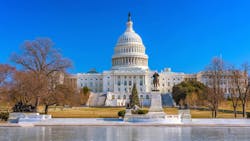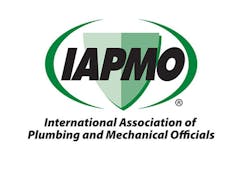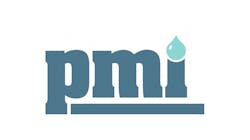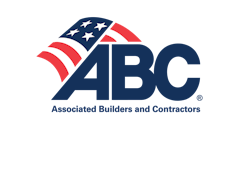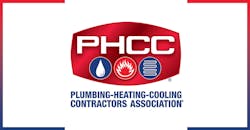Elections 2024: What Will it Mean for the Trades?
As Donald Trump assembles his cabinet for confirmation and readies for his second term in office, contractors will try to gauge the president elect’s potential policies as they relate to increased tariffs, tax reform, regulatory rewiring, the skilled trades, and American investment, to name a few.
During the first Trump Administration, we saw significant efforts to reduce regulations alongside strong support for US manufacturers and their export initiatives. “A second President Trump term presents an opportunity to build on this by investing in critical infrastructure, fostering domestic job growth, and boosting U.S. exports from domestic plumbing manufacturers. However, the industry continues to require meaningful regulatory reform,” says Dain Hansen, Executive Vice President, Government Relations, The IAPMO Group.
The plumbing sector, for example, is a $92 billion sector of the economy and the work that contractors do supports every community and family in America, stresses Hansen. “I anticipate that the Trump Administration would focus on preserving local jurisdictions' flexibility to adopt standards that meet their unique needs. There will also be an opportunity to get the various federal departments and agencies on the same page by adopting voluntary consensus standards that will save taxpayers money, expand incentives and opportunities, and promote long-term resiliency.”
According to Plumbing Manufacturers International (PMI), CEO and Executive Director, Kerry Stackpole, its members appreciate the desire to moderate regulations but also prefer stability. “We have made great strides relating to environmental responsibility, sustainability, and water efficiency. Our members are proactively planning for likely changes in the economy and working through the potential impact of tariffs and new circumstances in international trade. We hope the new administration will seek stability, lower interest rates, and work to minimize uncertainty in all markets,” says Stackpole.
But Stackpole is realistic in his approach. “We do expect a greater focus on deregulation. PMI members have clearly illuminated the importance of water conservation and consumer preference for WaterSense products, for example. Water shortages and having access to safe, clean water is a bipartisan issue. States such as California will continue to favor more water efficiency rather than less and this state continues to have a major influence over the rest of the nation. As we do every day, PMI will work to find reasonable middle ground for plumbing manufacturers within this dynamic.”
Hansen concurs saying that as this Administration seeks to cut government spending overall, “We will continue to advocate for programs that are industry supported, protect public health, and that help deliver clean water and sanitation.”
Mike Bellaman, President and CEO, Associated Builders and Contractors (ABC), has said that ABC is optimistic about the future of America’s construction industry and the opportunities to advance policies that protect free enterprise, reduce regulatory burdens and expand workforce development. With leaders and lawmakers committed to promoting economic growth and supporting the principles of fair and open competition, there is confidence that the construction industry will thrive and all workers will be given the opportunity to build America with fewer obstacles.
In addition, “We expect to see federal agencies offering a more cooperative approach with communities to educate contractors,” says Ben Brubeck, ABC’s Vice President of Regulatory Labor and State Affairs. Brubeck also says that there is a sense of relief in terms of tackling big-ticket items such as inflation, attention to the skilled trades and the loosening of the regulatory grip of the Biden administration. “This is good for advocacy work,” says Brubeck.
Seeing Red
Did I mention an all-red Congress? “A Republican Congress and administration will bode well on energy policy as PHCC members confront bans and restrictions on natural gas connections and appliances across the country,” says Mark Valentini, Vice President of Legislative Affairs, PHCC-National Association. “This will also bode well for tax policy as certain provisions in the Tax Cuts and Jobs Act of 2017 are set to expire which have been beneficial for many contractors, especially when considering Congress revisiting the corporate tax rate and potentially lowering it to 15% down from 21%.”
Valentini’s cohort, Charles White, VP Regulatory Affairs, PHCC-National Association, says that we can expect to see legislation on tax reform and energy in the new Congress. “Tight margins particularly in the House will require all Republicans to be on board to pass anything,” says White. “It is possible that the new administration will review regulations that are currently in litigation, like the residential gas furnace rule, and perhaps decide to pull back those rules for revisions. This could also affect decisions on whether to appeal adverse court rulings such as the recent ruling against the US Department of Labor’s Overtime Rule.”
Tariffs and the Industry
There is a back-and-forth debate brewing whether instituting tariffs is beneficial to the American economy and the American worker. IAPMO’s Hansen says that economists have different views on the topic of tariffs, but the plumbing industry is well-positioned to support continued domestic production of what our country needs—and increase US exports to other countries.
“Any policy that strengthens our manufacturing muscle is good for the economy and increases job opportunities in the trades. Programs such as the Market Development Cooperator Program and Standards Alliance at USAID, along with the Department of Commerce’s Foreign Commercial Service, provide vital support to US exporters. We hope the administration will continue backing these programs to ensure US products remain competitive overseas. We continue to monitor the impact tariffs are having on our global industry as manufacturers move locations to avoid these costs,” says Hansen.
While IAPMO is cautiously optimistic and vigilant, PMI shares concern. “During his campaign, President Trump spoke about his desire to increase tariffs—as high as 60% on Chinese goods, 10% to 20% across the board on all foreign goods, including Europe, and 25% on imports from Mexico, unless they curb the number of immigrants coming across the border. If he’s successful, these tariffs will have an inflationary impact, increasing the costs of production and in turn the costs of products in the marketplace. That’s certainly one of the biggest concerns plumbing manufacturers have right now.
“Our stance on this issue all along is that tariffs are harmful to the economy because they increase costs for manufacturers and have an inflationary impact on customers wishing to purchase plumbing products. These increased costs lead manufacturers to provide fewer jobs and they have less money for compensation as well. From an economic standpoint, we see no benefits from tariffs. PMI has always been an advocate for free and fair trade among nations,” says Stackpole.
ABC’s Brubeck says that tariffs are a negotiating tool to renegotiate policies with other countries. “While having a hard time getting materials from overseas, resolving the domestic supply chain is a good thing,” says Brubeck.
Commitment to the Trades?
While President Trump’s first term had support from the trade’s rank and file, the Industry Recognized Apprenticeship Rule, for example, received more negative public comments than perhaps any other rule, suggests White. Those negative comments came overwhelmingly from those same rank and file workers. “Polling data throughout the election shows that the President-elect enjoyed substantial support from skilled blue-collar workers, but his future actions must support their jobs in the workforce,” says White.
Bellaman says that ABC looks forward to working with the Trump administration and Congress to advance policies that solve the issues that the construction industry faces, including the skilled labor shortage of more than half a million, widespread regulatory burdens and inflation and tax challenges. “We welcome the opportunity to work with a president who is willing to welcome all of the US construction industry to rebuild America.”
